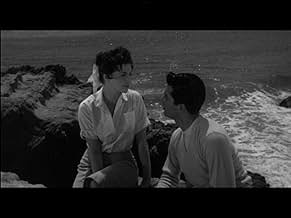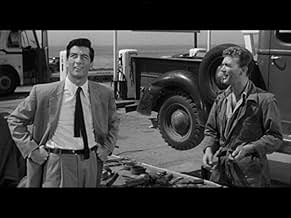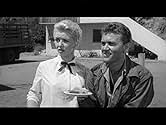Ajouter une intrigue dans votre langueA mental patient with a violent past is released from the institution, against the advice of his doctors, and sent back to his old neighborhood. Realizing that he can't handle the pressures ... Tout lireA mental patient with a violent past is released from the institution, against the advice of his doctors, and sent back to his old neighborhood. Realizing that he can't handle the pressures of big city life, and not wanting to commit the kinds of crimes that got him put away in t... Tout lireA mental patient with a violent past is released from the institution, against the advice of his doctors, and sent back to his old neighborhood. Realizing that he can't handle the pressures of big city life, and not wanting to commit the kinds of crimes that got him put away in the first place, he hops a bus heading out of the city and winds up in a small coastal town... Tout lire
- Vernon
- (as Eddy C. Waller)
- Male interviewer
- (as Richard Cutting)
- Bus Driver
- (uncredited)
- Boy
- (uncredited)
- Mailman
- (uncredited)
- Waitress
- (uncredited)
Avis en vedette
Abner Biberman's last movie as director -- he continued to work on episodic television until the early 1970s -- is a well-meaning study with a plea for better psychiatric funding. It's directed in a dry fashion, and Danton is pretty good in the lead role, aided by George Robinson's subtle lighting changes and a score that well reflects the moods of the lead.
Owing to economic pressures, Danton gains release, against the better judgement of his doctor, from the mental institution where he's been confined - there was a vague, violent incident in his past. But he's unequipped for the outside world. In Los Angeles, he bolts from a job interview when asked to fill in the holes in his resumé and starts to assault a man in the street he bumps into. Trying a geographic cure, he gets aboard a Greyhound, takes a liking to a little coastal town during a rest stop, and decides to stay.
He books a room in an off-season motel where he raises suspicions in the owner (Willis Bouchey) but falls for his daughter (Colleen Miller). The salt air, a new job in the aerospace industry and the prospect of romance do wonders until Bouchey, having ferreted out the dark secret, locks Danton out of his room and bids him hit the road. Whereupon Danton kills him, making it look like a robbery, and carries on his courtship with the bereaved Miller as if nothing had happened. But when evidence that he played a part in the slaying starts surfacing (even though one character observes that `A lot of people spill nail polish on money'), his false façade of stability starts to topple....
The man behind The Night Runner, Abner Biberman, was a minor actor (often playing Asian roles!) from the mid-1930s until he turned to directing in the mid-1950s. Frustratingly, he shows glimmers of talent, even sensitivity, but ultimately chooses a facile, melodramatic path (though Universal International Pictures may have forced his hand). The script is prescient about the too-early release from institutions of psychiatric patients not yet ready to cope with the stresses and responsibilities of daily living, an enlightened view underscored by Danton's largely restrained performance. But then the inexorable machinery of the suspense plot demands that he erupt as a psycho-killer. Still, the movie's end unmasks Danton as not quite a monster but rather a misfit with some sad insight into why the `normal' life he craves can never be his.
Le saviez-vous
- ConnexionsReferenced in Where's Marlowe? (1998)
Meilleurs choix
- How long is The Night Runner?Propulsé par Alexa
Détails
- Durée
- 1h 19m(79 min)
- Couleur
- Rapport de forme
- 1.85 : 1

































